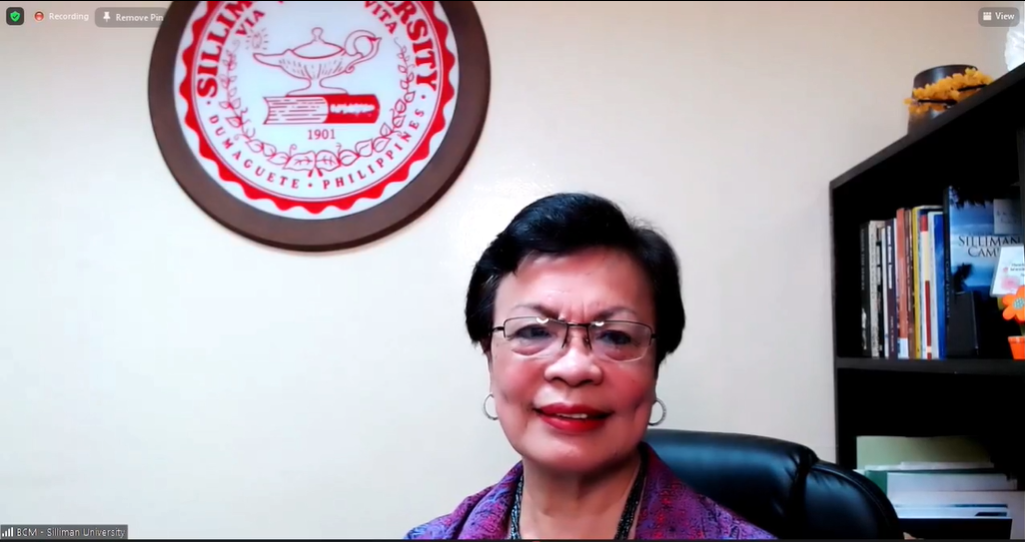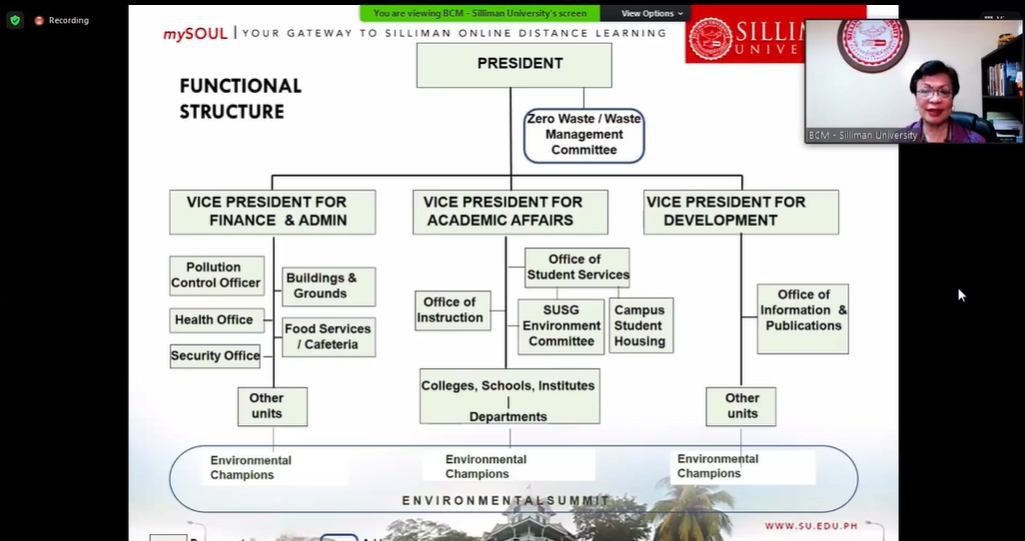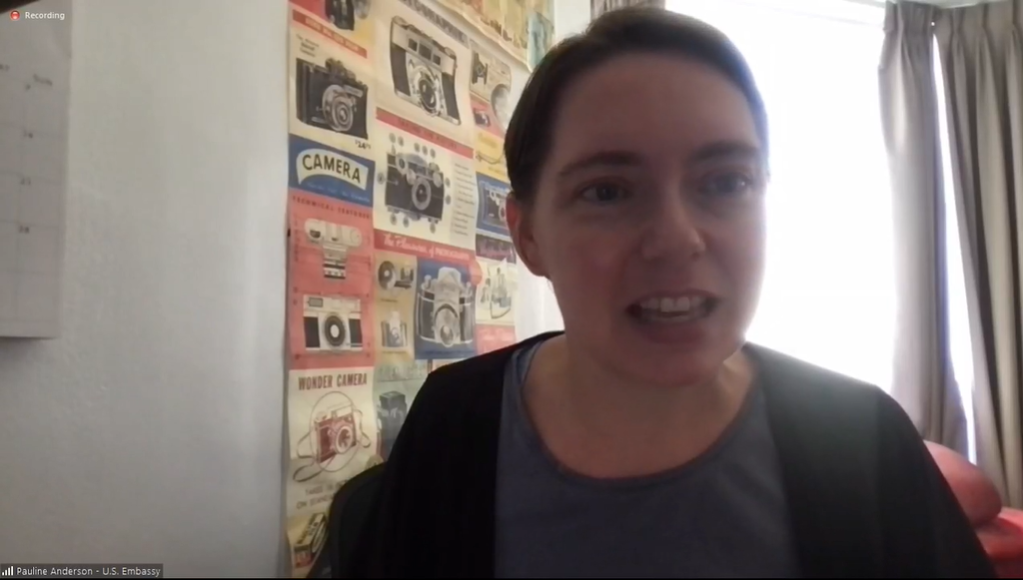
McCann: Individual care, collective action needed for the environment
Dr. Betty Cernol McCann, Silliman University (SU) president, emphasized the need for both “individual care” and “collective action” to conserve and protect the environment during her presentation in the EcoWomen Speaker Series organized by the SU American Studies Resource Center (ASRC) in partnership with the US Embassy in Manila, March 30, 2021 via Zoom.

Dr. Betty Cernol McCann, Silliman Univeristy (SU) president
In McCann’s presentation, she shared SU’s initiatives to become an environment-friendly, sustainable campus through the implementation of its Environmental Principles, Policies and Guidelines.
The SU Environmental Principles, Policies, and Guidelines were established in 2018 at the start of McCann’s presidency to institutionalize SU’s commitment to the environment and serve as the blueprint for SU’s nine major component activities: teaching, research, service, worship and fellowship, culture and sports, outreach, planning and development, administration, and operations.
McCann enumerated the general policies as the following: waste prevention and waste management, green procurement policies, food and food waste, events and festivals, greening of the campus.

Dr. McCann explains the units and individuals working together to make Silliman University an environment-friendly, sustainable campus.
“SU strives to exceed our environmental obligations under the law,” said McCann.
For SU to be a model of a sustainable campus, McCann said the University works on demonstrating waste management following zero waste principles; engaging in energy conservation, renewable energy utilization, and biodiversity conservation; and reducing its carbon footprint.
“For Silliman, our home, to be environment-friendly, there has to be individual care and at the same time, collective action needs to be in place,” McCann added.
In SU, McCann said students actively participate in the University’s efforts. She recognized the Environment Committee of the SU Student Government for actively partnering with the University administration in environmental projects and programs.
“If we go for zero waste management, we must strive towards 100 percent engagement or participation by all the constituents in the academic community,” said McCann.
The SU ASRC, also known as American Corner Dumaguete, organized the EcoWomen Speaker Series with the theme “Stories of hope: Women in transforming the cause for environmental problems” to shed light on the vital role women play in society and the challenges faced by women in conservation work, in celebration of Women’s Month in the Philippines and Women’s History Month in the US every March.
Pauline Anderson, assistant cultural officer of the US Embassy in the Philippines, said the Series is a virtual program of American Spaces Philippines inviting local, women environmental leaders and advocates to share their projects and exchange ideas with the goal of collectively finding sustainable solutions for environmental problems.

Pauline Anderson, assistant cultural officer of the US Embassy in the Philippines
“Women today are leading the way in environmental protection, in government, in business, in science and technology, and more. Opportunities to talk about women’s achievement such as these remind us of the value of gender equality and diversity,” said Anderson.
American Corners in other cities also hosted their own webinar under the EcoWomen Series, namely: Bacolod, Baguio, Batac, Cagayan de Oro, Cebu, Cotabato, Davao, Iloilo, Jolo, Manila, Marawi, Tawi-Tawi, and Zamboanga.


